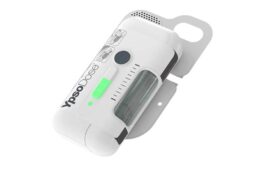UCB and Biogen revealed that a Phase IIb study of the experimental drug dapirolizumab pegol (DZP) in adults with moderately-to-severely active systemic lupus erythematosus (SLE) failed to meet its primary endpoint. The study consisted of 182 adults with moderately-to-severely active SLE despite receiving standard-of-care treatment such as corticosteroids, anti-malarials, and non-biological immunosuppressants.
Despite the trial’s failure to meet the primary endpoint, the companies said the study “demonstrated consistent and potentially meaningful improvements for the majority of clinical endpoints in patients treated with DZP compared with placebo, and the biomarker data demonstrated evidence of proof of biology.” Biogen and UCB will continue to evaluate these data while assessing potential next steps.
Biogen and UCB are not the only drugmakers struggling to acheive positive endpoints in SLE trials. Ealier this month, Xencor’s experimental drug XmAb5871 failed to achieve the primary endpoint of a SLE Phase II study. Similarly, in August, AstraZeneca reported that a late-stage trial of anifrolumab in adults with moderate-to-severe SLE failed to meet its primary endpoint of a significant reduction in disease activity.
About Dapirolizumab Pegol
Dapirolizumab pegol is an investigational anti-CD40L pegylated Fab being developed in systemic lupus erythematosus (SLE) jointly by UCB and Biogen. Through interactions with its receptor, CD40, CD40L plays an important role in regulating interactions between T cells and other immune cells, notably B cells and antigen presenting cells, and therefore, affects several important functional events thought to be involved in autoimmune disease.
Filed Under: Drug Discovery and Development




